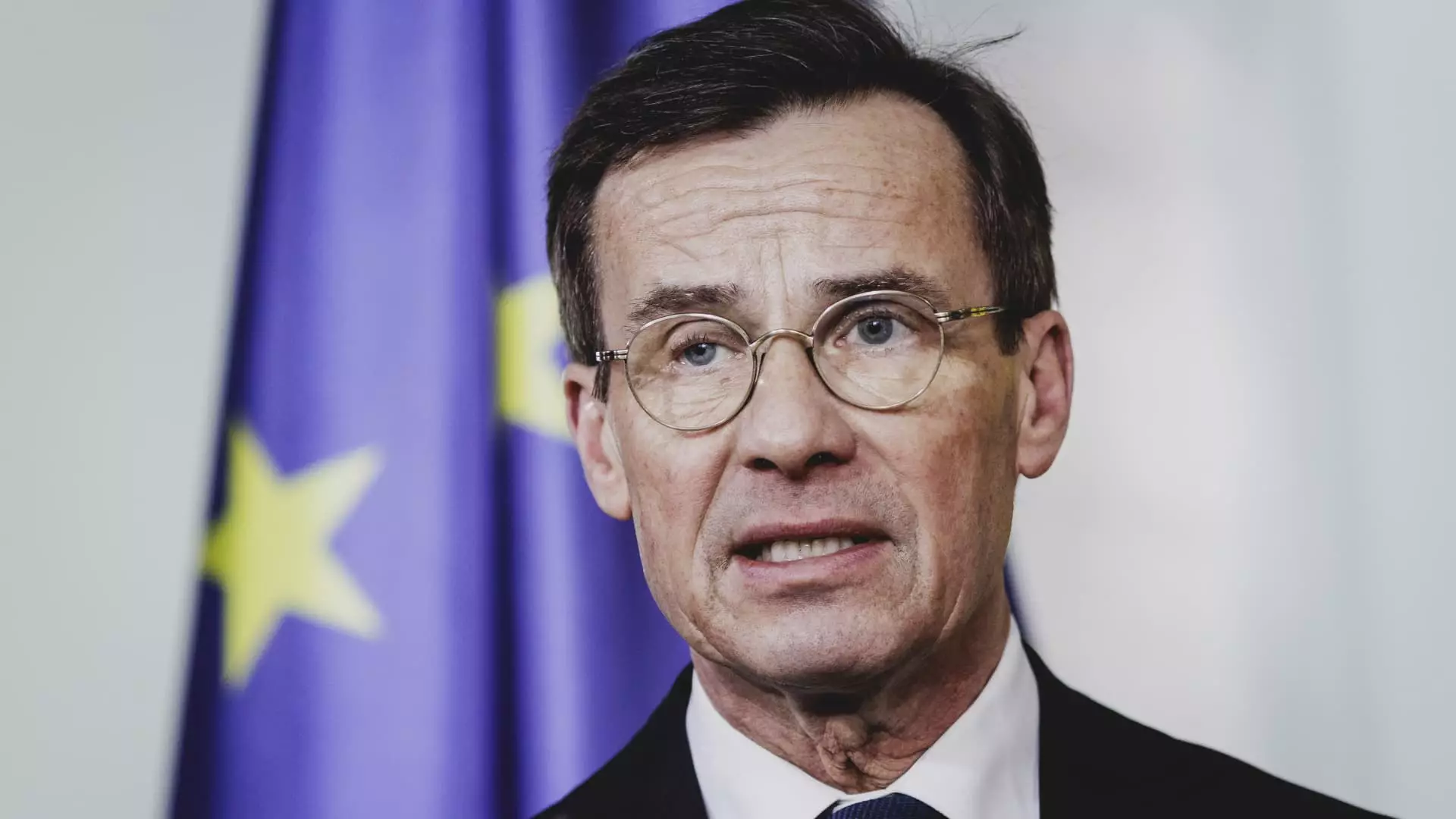In a rapidly evolving technological landscape, Europe faces a daunting challenge: the potential stagnation of its economic growth and technological prowess. As Sweden’s Prime Minister Ulf Kristersson voiced at the recent Techarena event in Stockholm, the continent could become akin to a “museum” if it fails to soften its stringent regulations surrounding artificial intelligence (AI). This sentiment reflects broader concerns among European leaders about maintaining competitiveness against faster-growing economies like those of the United States and China.
With technological advancements accelerating at breakneck speed, Europe is at a crossroads. The stark warning from Kristersson is not just hyperbole but a reflection of the potential repercussions of inaction. The fear of being left behind in the AI race is palpable, as leaders scramble to devise strategies that would reinvigorate Europe’s position on the global stage. Without significant changes to regulatory frameworks, there is a genuine risk that European nations may find themselves sidelined in discussions about the future of AI.
In response to these concerns, significant financial commitments have been made by European leaders aimed at boosting the AI sector. French President Emmanuel Macron recently announced a sizeable 109-billion-euro ($113.7 billion) investment plan that includes contributions from foreign investors and domestic companies alike. Meanwhile, European Commission President Ursula von der Leyen pledged to mobilize 200 billion euros ($208.6 billion) for AI initiatives across the EU. These ambitious investment figures stand in stark contrast to the regulatory landscape that currently dominates the European approach to artificial intelligence.
However, while these investments demonstrate a willingness to advance, they must be supported by a regulatory environment that encourages innovation rather than stifles it. If investors and tech companies perceive Europe as a landscape rife with bureaucratic hurdles, they may be dissuaded from participating in this burgeoning market. At its core, the effectiveness of these financial commitments hinges on the region’s ability to cultivate a more innovation-friendly climate.
The recent discourse surrounding AI regulation has highlighted a critical dilemma: how to protect citizens from potential risks associated with AI technology without crippling innovation. U.S. Vice President JD Vance articulated this predicament at the Paris AI Action Summit, emphasizing the need for international regulatory frameworks that foster growth. His comments resonate with the growing frustrations from tech executives who argue that the EU’s stringent regulatory approach impedes the sector’s development.
In contrast to the EU’s regulatory stance, the U.S. positions itself as a leader in technology by promoting a culture of risk-taking and innovation. Vance’s appeal to European allies urges them to shift from a mindset of apprehension to one of optimism, enabling them to embrace the transformative potential of AI. The call for a favorable attitude towards AI is not merely an appeal for leniency; it reflects an urgent need for collaboration on an international level to address shared challenges presented by AI advancements.
Kristersson’s assertion that excessive regulation hampers business opportunities is backed by mounting evidence that many European startups suffer from a lack of access to essential resources. Companies are finding it increasingly difficult to leverage cutting-edge technologies due to an environment laden with uncertainty. Moreover, the paradox of European businesses relocating to the U.S. for better access to capital only underscores the pressing need for reform.
To reverse this trend, European nations must work towards creating a dynamic ecosystem conducive to business growth. This includes re-evaluating existing legislative frameworks to ensure they promote not just compliance, but also creativity and technological advancement. For Europe to thrive in the artificial intelligence arena, it must become a magnet for talent, investment, and innovation rather than a hurdle for emerging tech companies.
The conversation around AI regulation in Europe is not just an academic debate but a vital discourse that will shape the continent’s economic future. As leaders like Kristersson, Macron, and von der Leyen rally for enhanced investments in AI, they must also champion a narrative of deregulation that prioritizes innovation.
The opportunity to redefine Europe’s role in the global AI race is at hand, and the time for decisive action is now. By fostering a culture of optimism over trepidation and embracing the potential of artificial intelligence, Europe can avoid the fate of becoming a technological museum, instead emerging as a leader in innovation and economic growth for years to come.


Leave a Reply